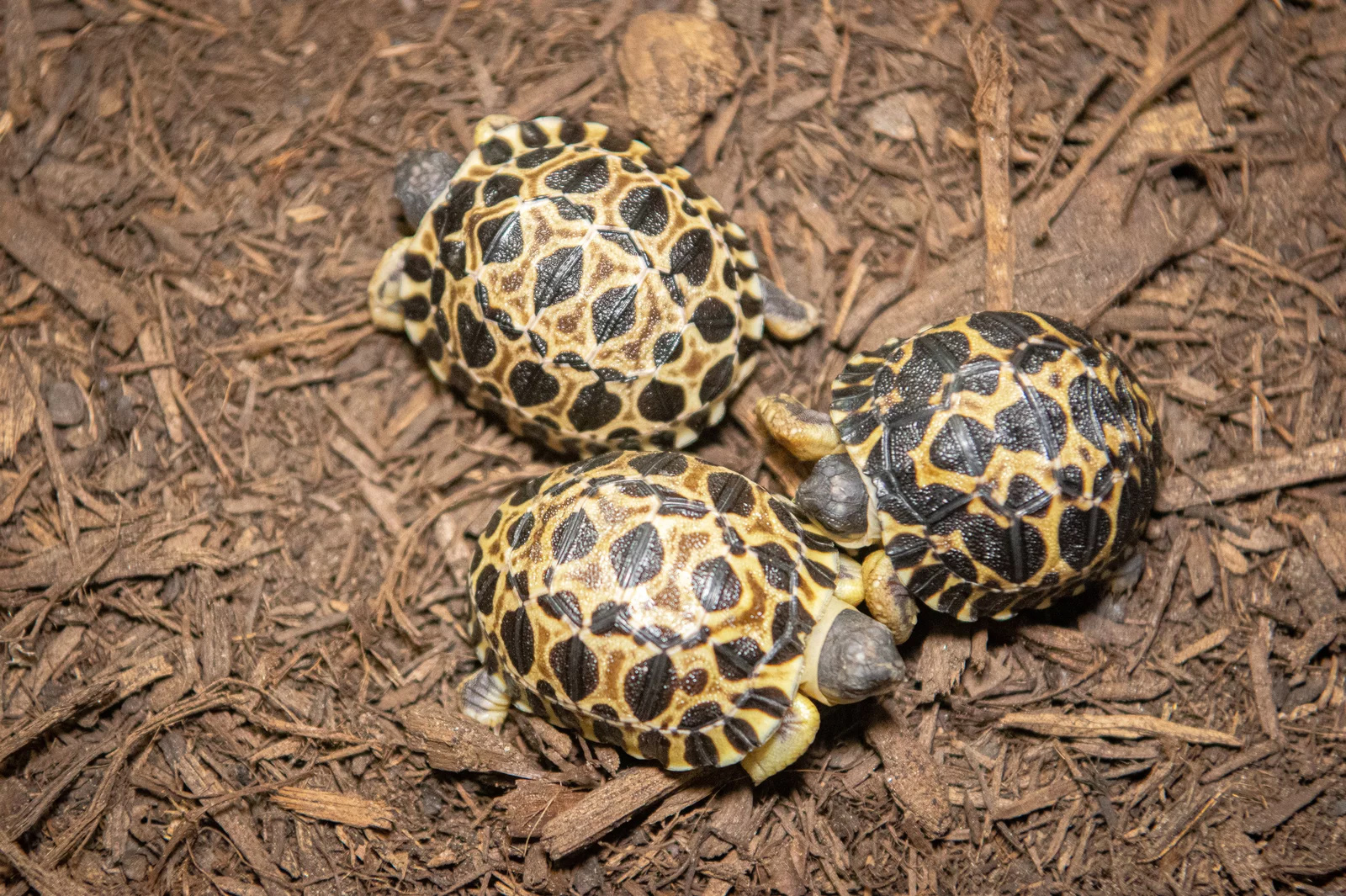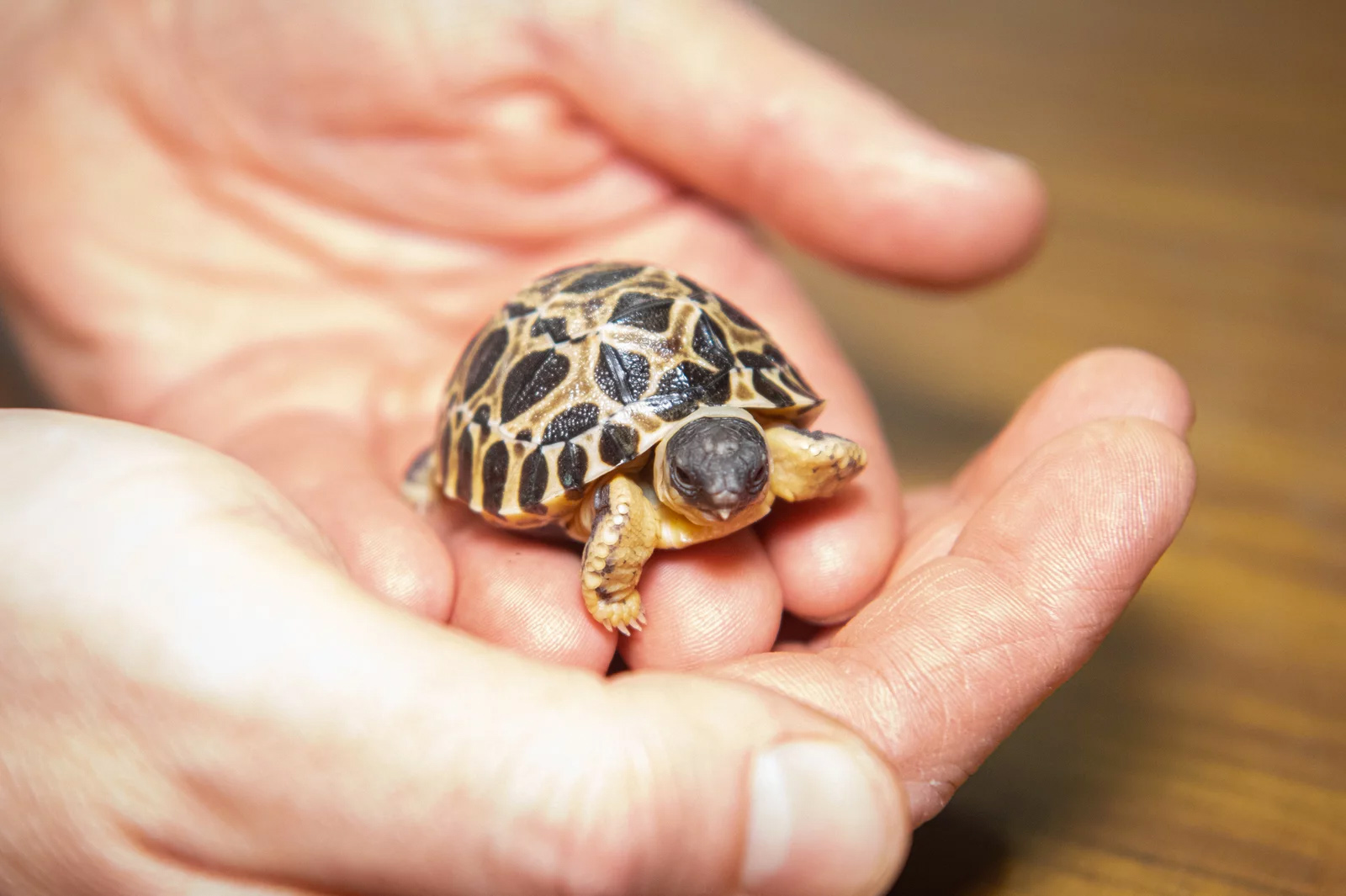 VIEW LARGER The three tortoise babies — Dill, Gherkin, and Jalapeño — are the first offspring of their 90-year-old father, Mr. Pickles.
VIEW LARGER The three tortoise babies — Dill, Gherkin, and Jalapeño — are the first offspring of their 90-year-old father, Mr. Pickles. Nobody ever said turtles worked quickly.
Though it took him nearly a century, the 90-year-old radiated tortoise known as Mr. Pickles is finally a dad.
The Houston Zoo announced on Thursday that he and his partner, 53-year-old Mrs. Pickles, recently welcomed three tortoise hatchlings: Dill, Gherkin and Jalapeño.
The births are a "big dill," says the zoo, because the radiated tortoise, native to Madagascar, is a critically endangered species whose numbers are in decline.
Radiated tortoises produce few offspring, according to zoo officials, and the species suffers from over-collection for illegal sales on the black market. Captive breeding programs have produced new radiated tortoises, but experts say the reptiles may go extinct in the wild.
First-time father Mr. Pickles is considered the most genetically valuable radiated tortoise in the Association of Zoos and Aquariums' Species Survival Plan.
 VIEW LARGER One of the Pickles babies is held after being hatched at the Houston Zoo.
VIEW LARGER One of the Pickles babies is held after being hatched at the Houston Zoo. Mr. and Mrs. Pickles have been an item since her arrival to the zoo in 1996.
It was only by chance that a herpetology keeper at the zoo saw Mrs. Pickles laying her eggs one recent day at closing time.
The zoo's animal care team uncovered the eggs and moved them to the Reptile & Amphibian House. Officials said otherwise the eggs likely wouldn't have hatched on their own, because Houston's soil isn't hospitable to Madagascar native tortoises.
Dill, Gherkin and Jalapeño are now living in the Reptile & Amphibian House until they grow big enough to join their parents.
The trio can be told apart by their shells, the zoo said: Jalapeño has the darkest shell, Dill's shell is lighter and Gherkin's lighter shell has a white dot in the center.

By submitting your comments, you hereby give AZPM the right to post your comments and potentially use them in any other form of media operated by this institution.